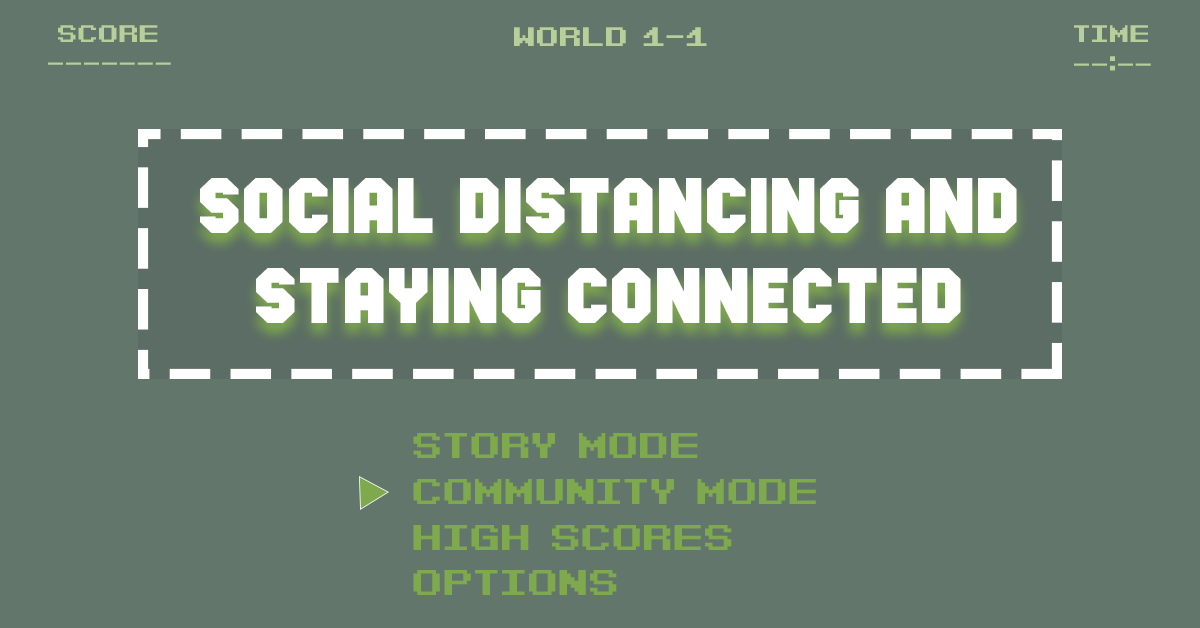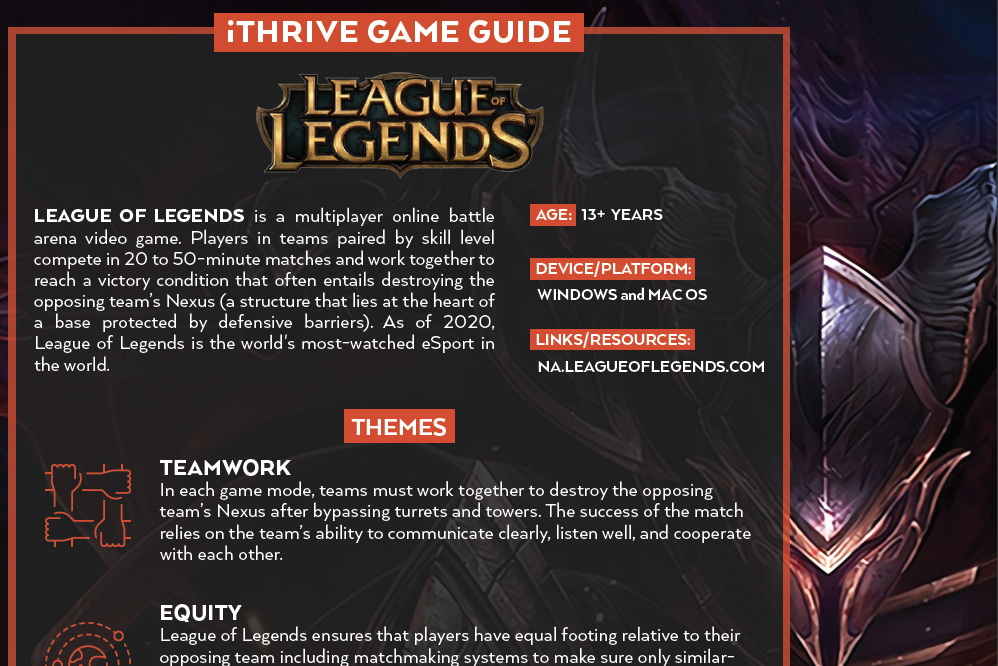Connection Through the Power of Games
April 16, 2020 / by Susan Rivers, PhD, Executive Director and Chief Scientist at the nonprofit iThrive Games Foundation.
Games hit us where we are human. Gameplay is social. It is emotional. It is intellectual. I’m inspired to see that stories in major news outlets which once warned of the dangers of video games have been replaced with stories of how video games can carry us through a quarantine of undetermined length, supporting us in the fear and loneliness that for many of us has been unknown. Gameplay is entertainment, and it also keeps our minds active while providing a space for friends and family to meet and share joy, collaboration, and competition. Games can help us escape the confines of our homes and travel to new lands, both realistic and fantastical. I’m finding much needed connection, joy, and some new superpowers in games right now.
The COVID-19 pandemic has changed how we all live, work, learn, and play. My home office now includes my three children (ages 7, 11, and 14), in addition to my husband, who runs a school and is working all hours to foster community across and between hundreds of students, families, and educators. Now, more than ever, games are a powerful tool for creating connections amongst us as a family and also with those from whom we are physically distant.
One thing we are learning from being home together is that it’s about just that–being together. While my children have their schoolwork to complete, mixing both online interaction and working on their own, over the last three weeks we have seen that being together and giving the kids our focused attention is integral not only to their sense of well-being but also to their ability to learn. Playing games together—tabletop and digital—is one way we do this. My youngest and I begin each day playing a game together over breakfast. In the afternoon all three kids hop on Minecraft or Fortnite with cousins and friends. We filled a hat with slips of paper, each with the name of a game written out; at night we draw from a hat to find out what game we will spend the evening playing together. Games bring us together, regardless of differences in our ages and interests.
At iThrive Games Foundation, the organization I lead, we use games and game design to equip teens with the skills they need to be healthy and resilient, the tools that support and protect their mental health and well-being, and the systems thinking they need to recognize inequity along with meaningful opportunities to imagine and design a better world.

Learning doesn’t happen without connection. Our touchstones at iThrive are games, social and emotional learning, and teens. Woven into that fabric is connection. As families are home and parents and teachers do everything in their power to support students’ continued learning, organizations like ours will turn toward bringing classroom offerings online for distance learning. While we do that, we can’t forget that relationships and connection help drive deep learning. At iThrive, as we look to adapt our game-based curriculum and our simulation game, we are ensuring that any changes reinforce the same pillars of a warm, supportive environment that we adhere to in person.
And it’s not just learning as usual that we want to support. Our staff is asking, how can learning — and working — be supported in the midst of a pandemic? The circumstances are different now. It’s learning and working amidst stress, anxiety, grief, and the sense of loss we all feel about our usual rituals, routines, and milestones.
How can we lean into social and emotional skills to help navigate these times?
Supporting one another socially and emotionally is more important than ever. Finding creative ways to support one another from afar, knowing that our social and emotional well-being bears on the quality of work and on the quality of learning across the lifespan, especially in times of stress and uncertainty. Make time to hold regular weekly check-ins–with your work colleagues, with your family, with your friends. We prioritize these check-ins with our remote iThrive team. They are about connecting on a human level; getting to know more about each other, how we’re coping, and what practical and moral support we need. In conversations and in our Slack we share photos of our pets and families, recommend games we’re playing at home and virtually, and reflect on things we’re doing outside of work time to nourish and care for ourselves. Social connections are critical during this time.
With that in mind, we know many parents and teachers want and need guidance for how to connect with and support their teens. We know that now is not the time to enforce tight limits on teens’ connecting with friends on screens whether that’s through video games, FaceTime, or social media. This is the only way teens are able to stay in connection with their friends during physical distancing; and, during adolescence friendships are critical for healthy development. Teens need to be in connection with their friends regularly; their well being depends on it.
We also know that not all adults are gamers or know how to support their teens playing video games. We have some tools to help.
- Our tips for being curious about games teens play encourage openness to learning as a way to shift the conversation from reprimanding (e.g., “Get off your devices!”) to genuine interest and connection (e.g., “what characters do you most enjoy playing?”).
- Need some ideas for games? We created iThrive Game Guides because we know sometimes the entire family does not play video games. It can be hard to know how to join in or even have a conversation about games if you don’t play. The game guides include discussion prompts to spark connection and meaningful conversation between game players and those who love them.
In what ways are games helping you during this challenging time to take care of yourself and be connected with others? I’d love to hear from you.

